Brexit amendments: What did MPs vote on and what were the results?
MPs have voted on a series of amendments designed to change the direction of Brexit.
Commons Speaker John Bercow selected seven amendments to be debated and voted on.
Here are the amendments, and the results, in the order in which they took place.
Labour leader Jeremy Corbyn's amendment
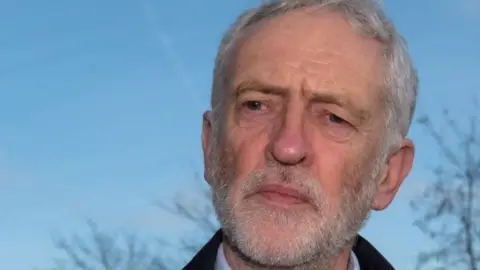 Getty Images
Getty ImagesInstructed the government to rule out a "disastrous no deal" scenario (this option was supported by some Brexiteers but many MPs feared it would cause chaos at ports and disruption for businesses) and allowed Parliament to consider - and vote on - options including:
- An alternative Brexit deal involving Labour's plan for a permanent customs union with Brussels and a version of the EU's single market
- Legislating to hold a public vote on either a deal or a proposition that has MPs' support
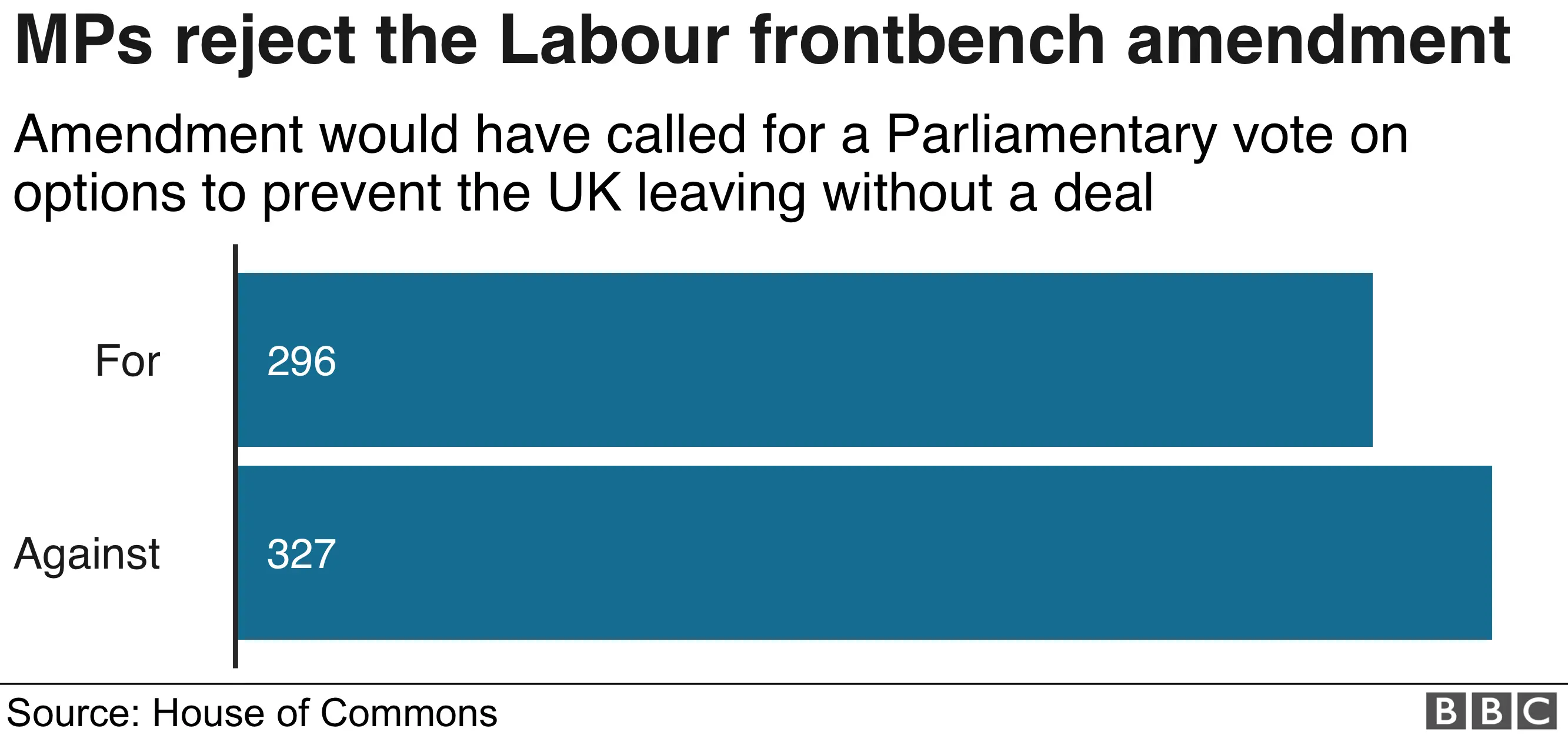
SNP leader at Westminster Ian Blackford's amendment
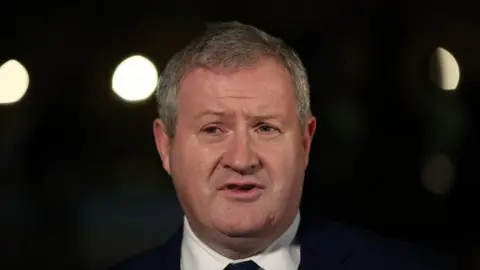 PA
PA- Called for an extension of Article 50
- Ruled out a no-deal Brexit
- Emphasised the role of the UK nations in the Brexit process
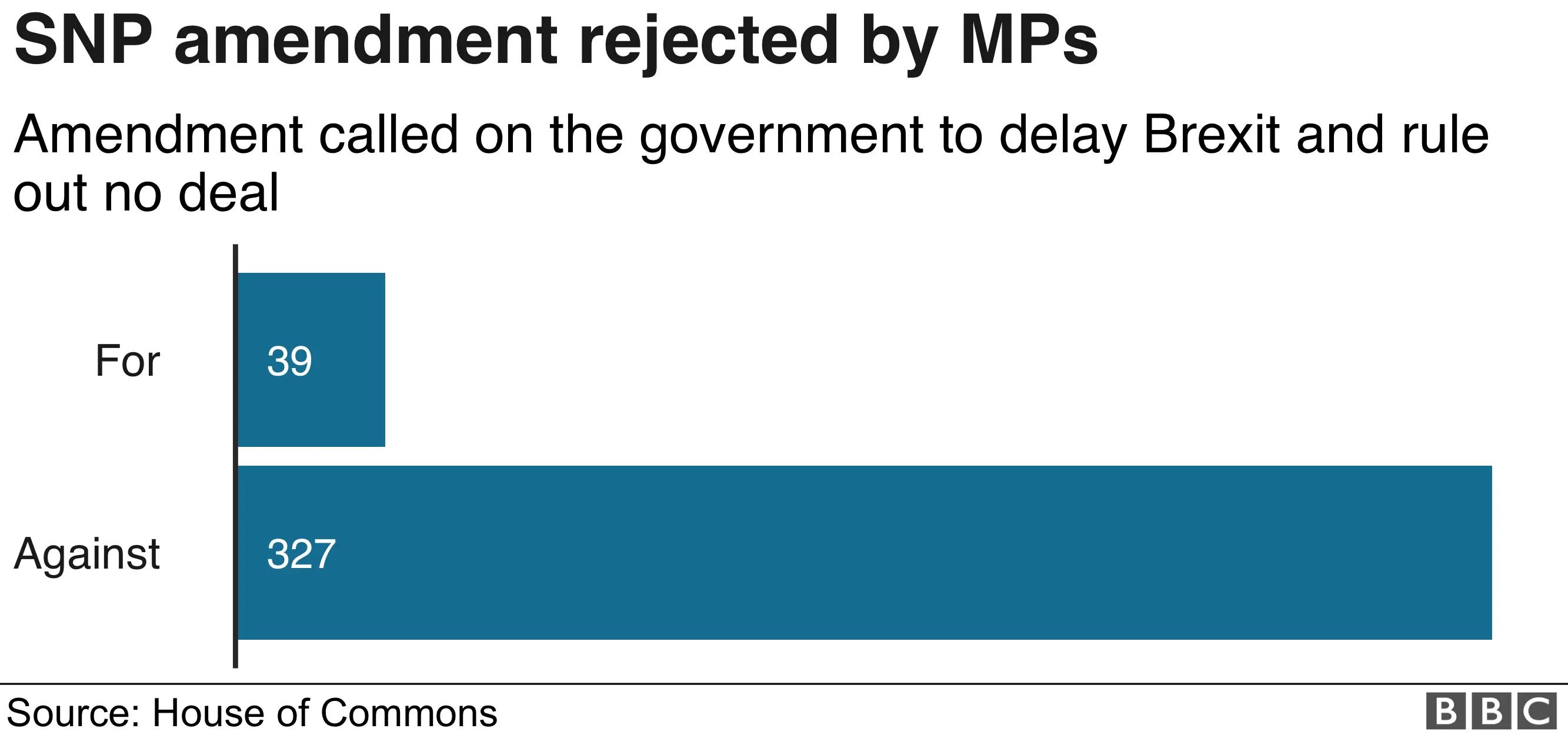
Conservative MP Dominic Grieve's amendment
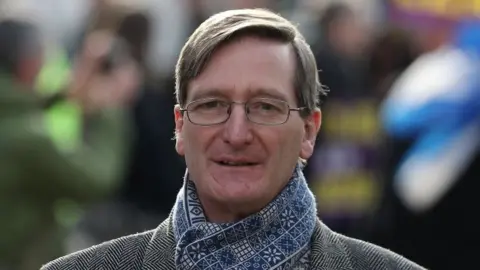 Getty Images
Getty ImagesForced the government to make time for MPs to discuss a range of alternatives to the prime minister's Brexit plan on six full days in the Commons before 26 March.
MPs would have been able to table amendments to be voted on at the end of the debate, which could have included alternative Brexit options such as Labour's plan, a second referendum, no deal and the Norway-style relationship preferred by some MPs.
This had the backing of some Labour backbenchers, as well as the SNP's Philippa Whitford, Lib Dem Tom Brake, Plaid Cymru's Jonathan Edwards and Caroline Lucas, of the Greens.
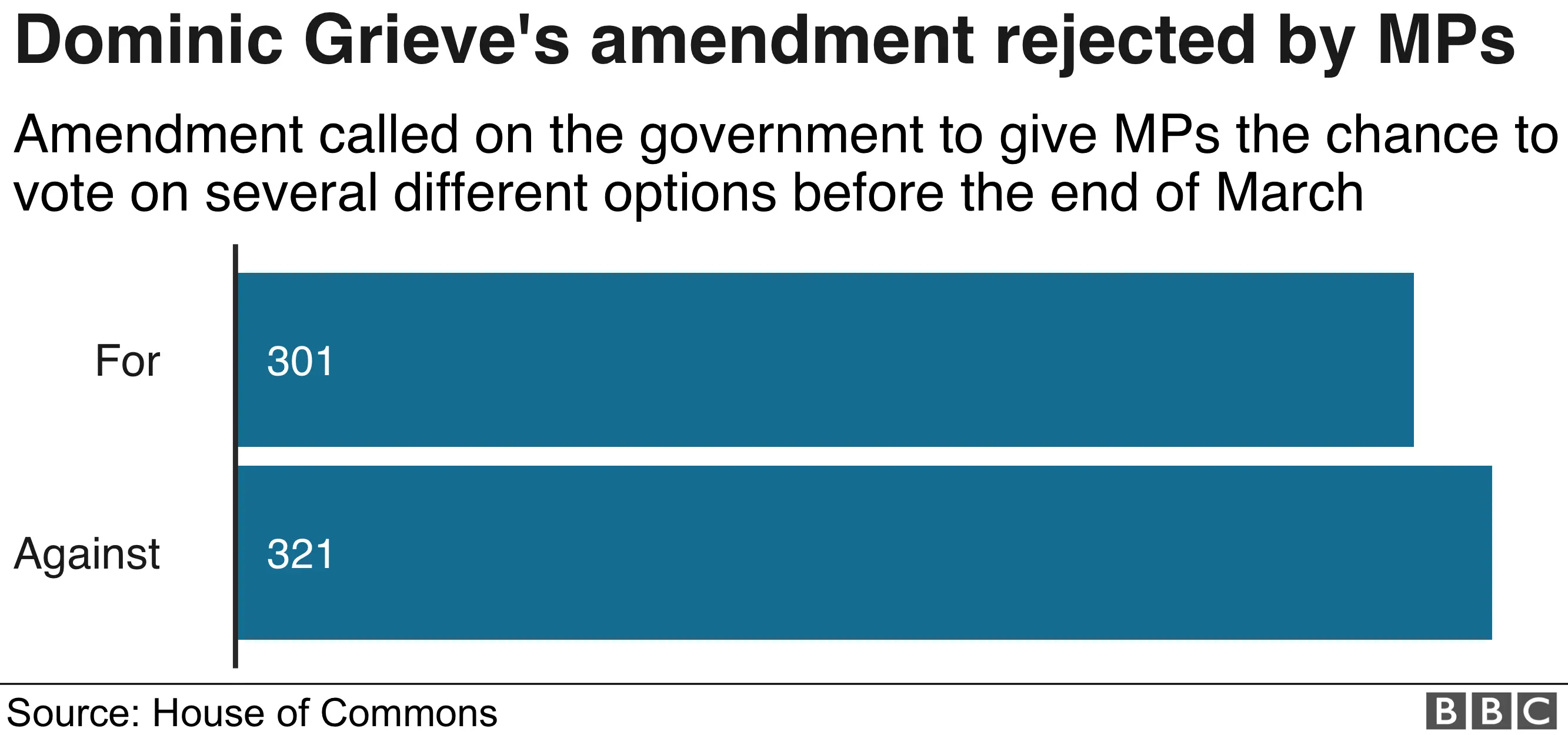
Labour MP Yvette Cooper's amendment
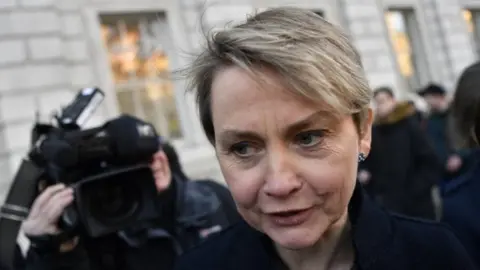 EPA
EPAAttempted to rule out the UK leaving the EU without a formal deal by allowing Parliament time to pass a new law.
The bill to bring in the new law would have required Theresa May to seek to postpone Brexit day (currently 29 March) until 31 December, if MPs did not approve her deal by 26 February.
The prime minister would have had to do this by asking the EU to agree to extend the two-year limit on Article 50 - the mechanism paving the way for the UK to leave the EU.
It had the backing of senior Conservative backbenchers such as Nicky Morgan and Oliver Letwin, former Lib Dem health minister Norman Lamb and Plaid Cymru's Ben Lake.
The Labour leadership had also decided to get behind this amendment and ordered Labour MPs to vote for it.
But Labour Leader Jeremy Corbyn said he backed limiting any extension to a "short window" of three months to allow time for renegotiation.
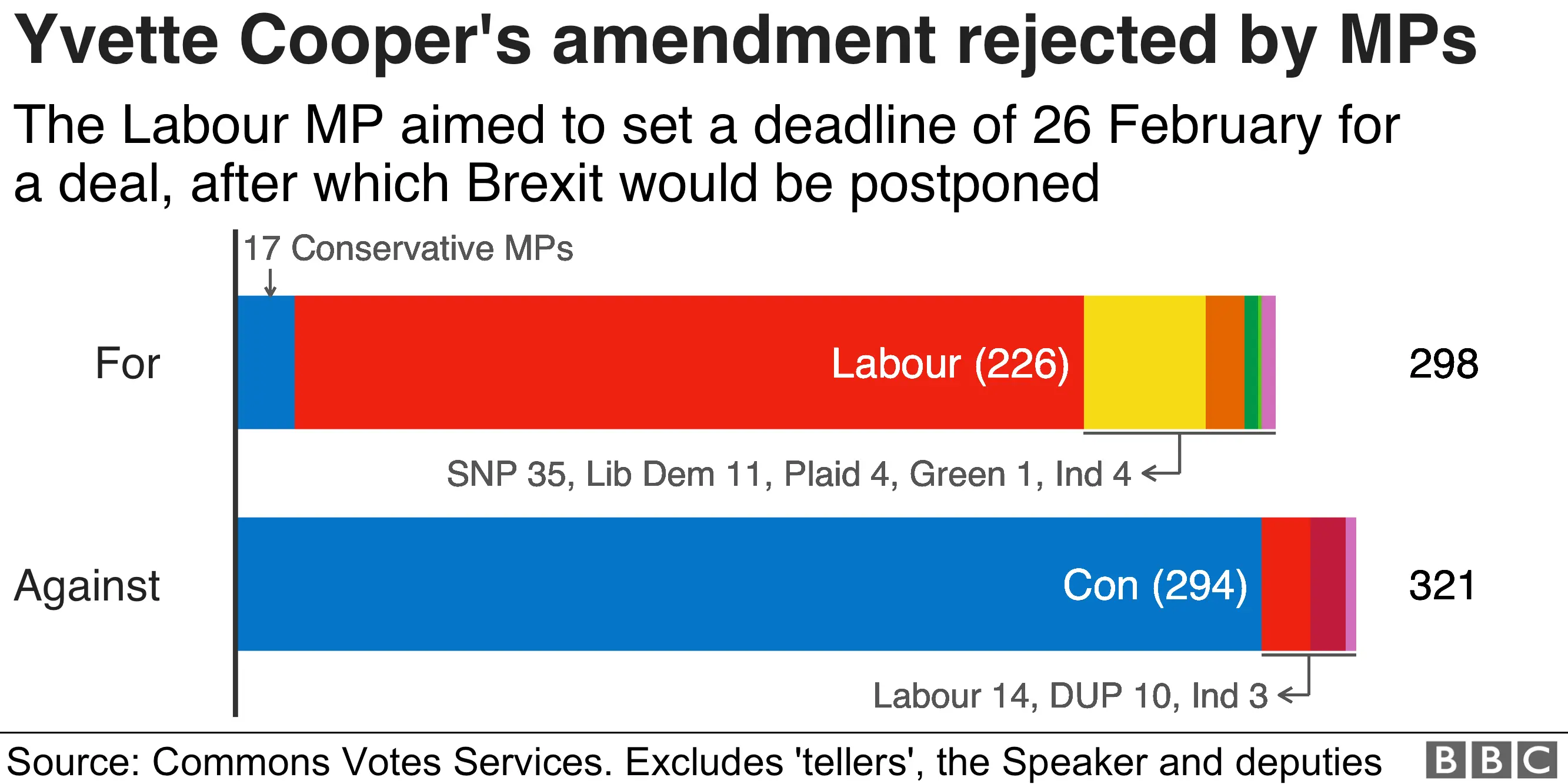
Labour MP Rachel Reeves' amendment
Required the government to ask the EU to postpone Brexit day (without specifying for how long).
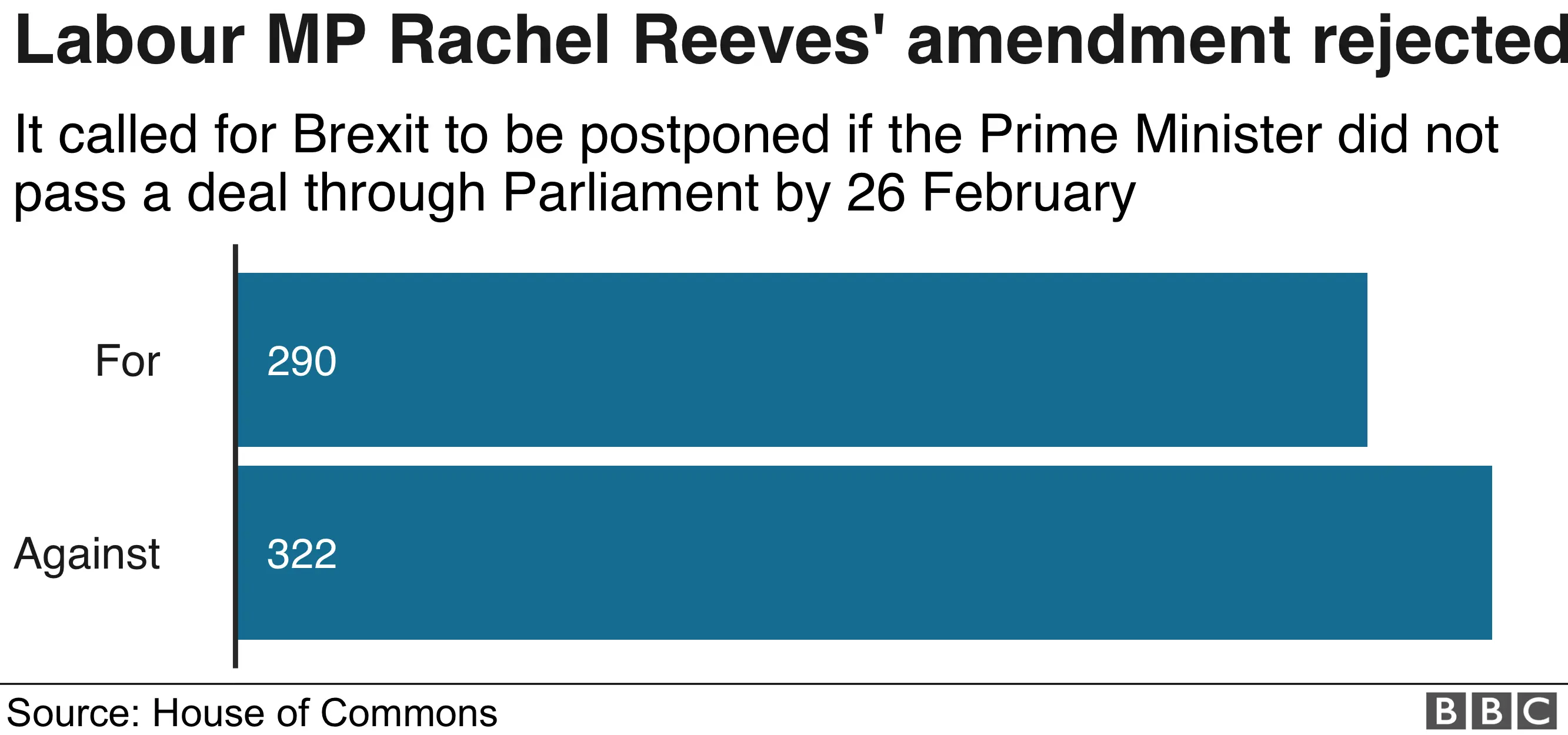
Dame Caroline Spelman (Conservative) and Jack Dromey (Labour) amendment
Seeks to prevent a "no-deal" Brexit by adding to the PM's motion that Parliament "rejects the United Kingdom leaving the European Union without a Withdrawal Agreement and a Framework for the Future Relationship".
The two MPs are in neighbouring constituencies and have raised concerns over local manufacturing supply chains.
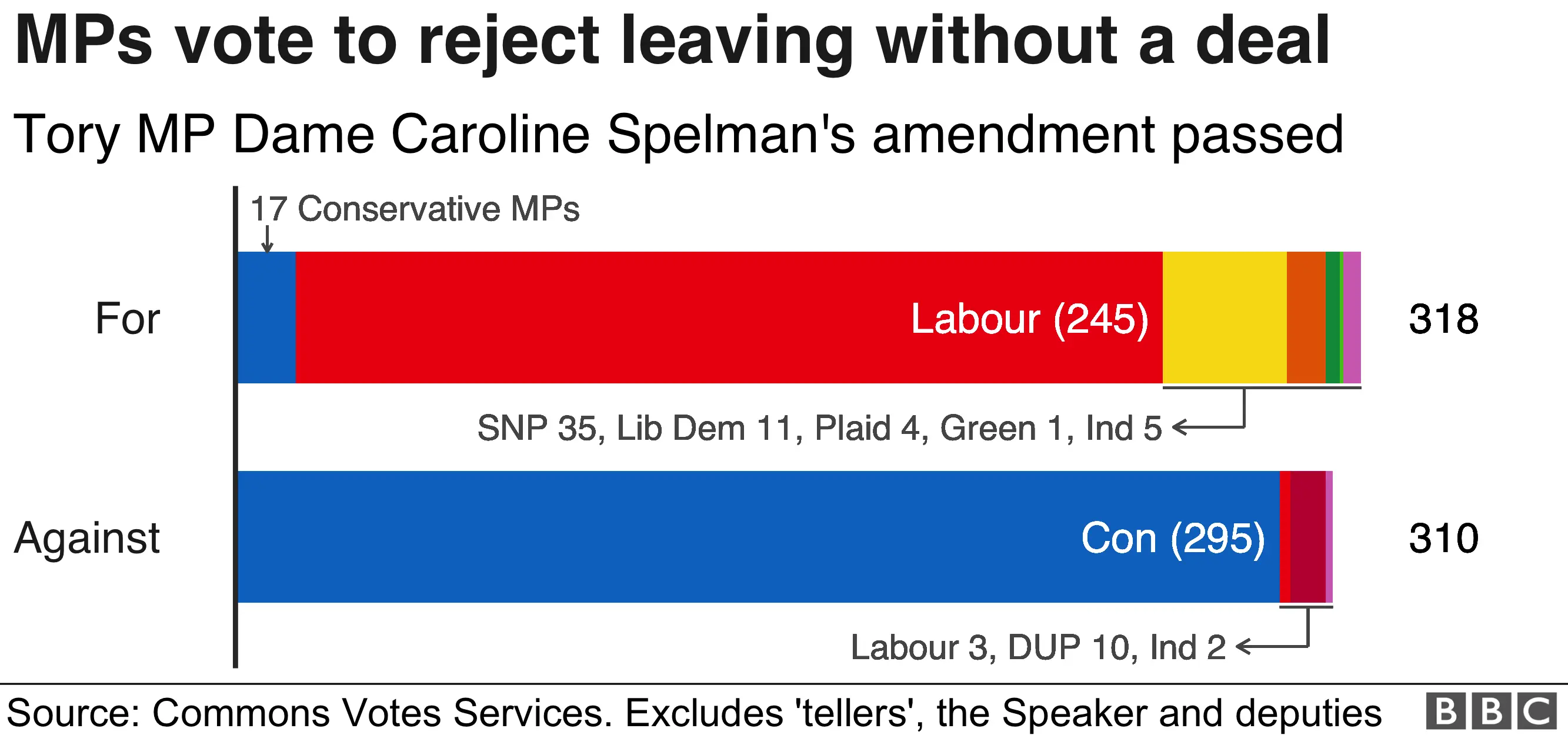
Conservative MP Sir Graham Brady's amendment
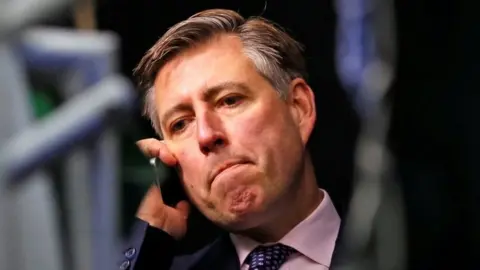 Reuters
ReutersCalls for Parliament to require the backstop to be replaced with "alternative arrangements to avoid a hard border" but otherwise supports the prime minister's deal.
Theresa May ordered Conservative MPs to vote for this amendment.
Some Conservative rebels, who voted against the prime minister two weeks ago, said it was too vague and did not address their other concerns about her deal.
Others, such as former Foreign Secretary Boris Johnson, said they would support it if Mrs May indicated that she would press the EU to re-open the withdrawal agreement to make changes to the backstop that would be legally binding - something she has told MPs that she will do.
Northern Ireland's DUP, which keeps Mrs May in power, also indicated they would back the Brady amendment.
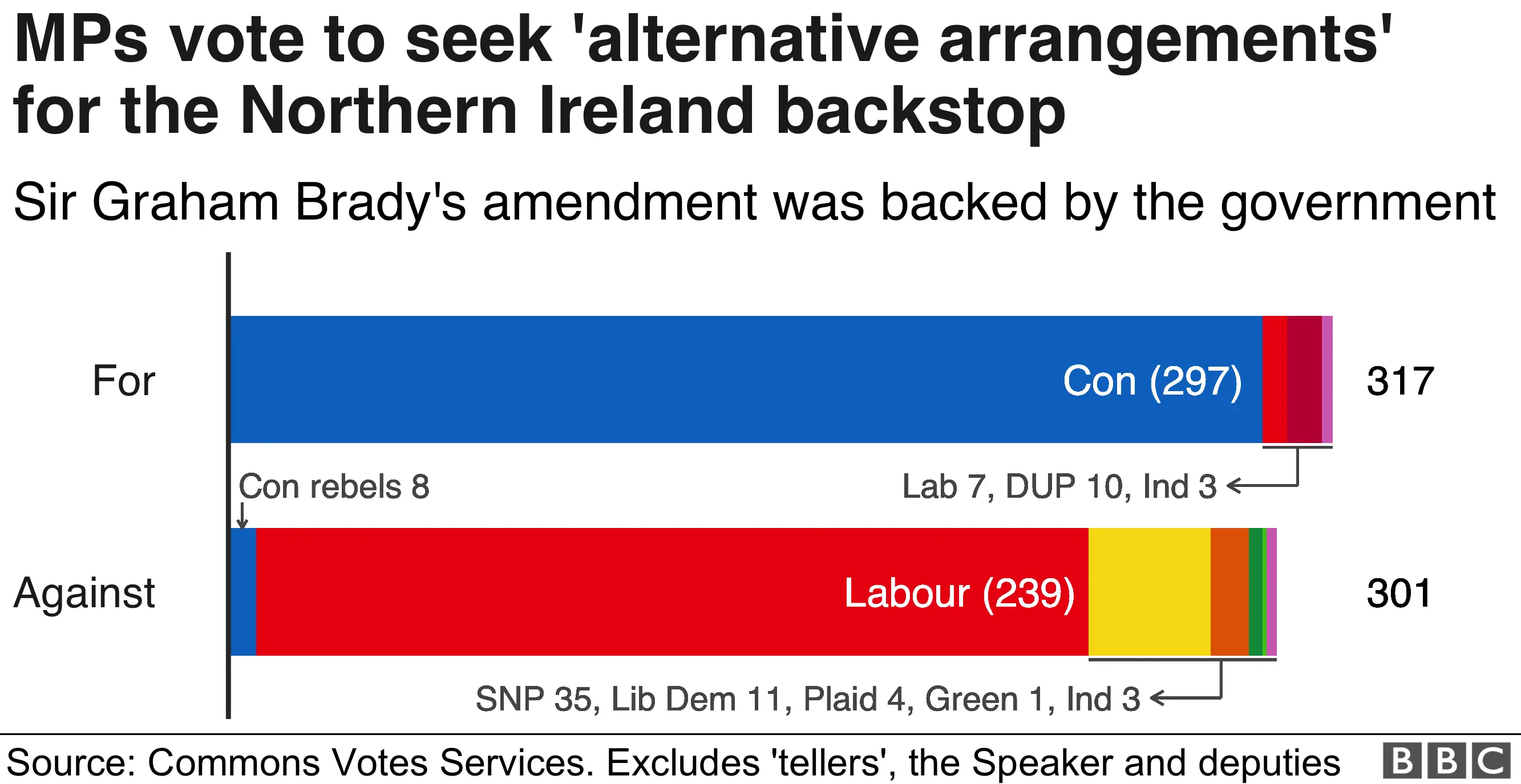
What happens next?
Neither of the Spelman nor the Brady amendments are binding on the government, although support for them puts political pressure on Theresa May to follow their direction.
Theresa May has already said she will return to Brussels to reopen negotiations on legally-binding alternatives to the "backstop".
